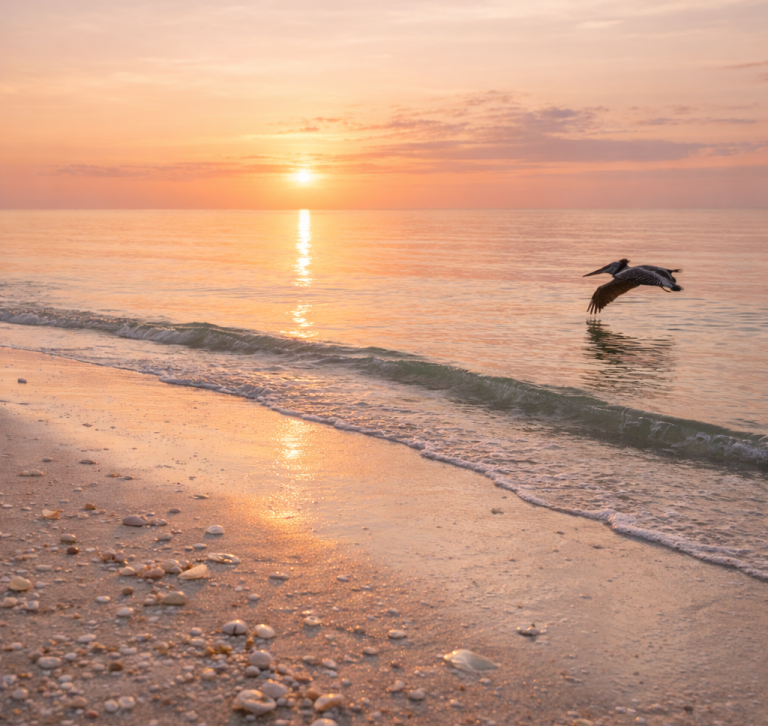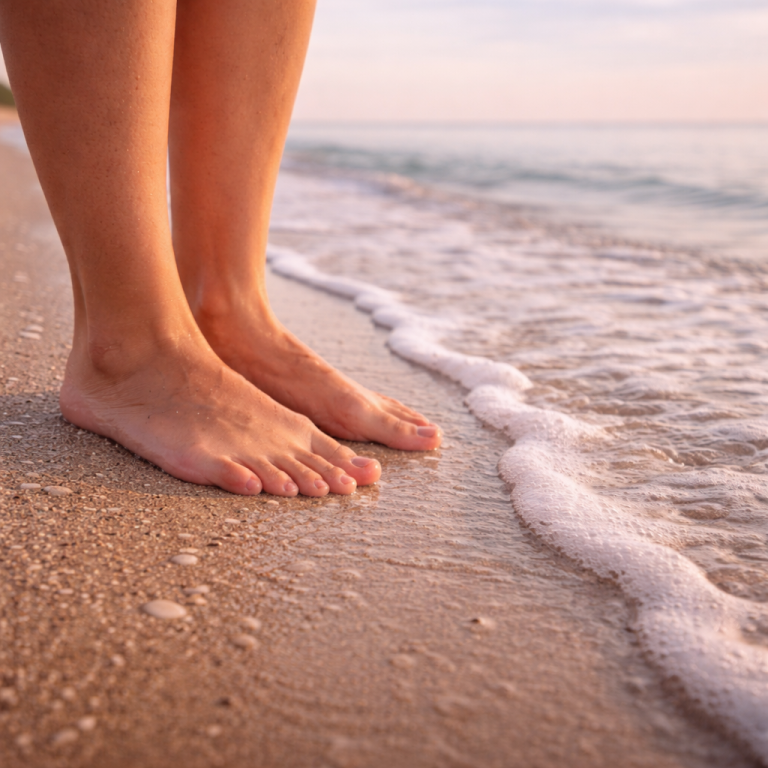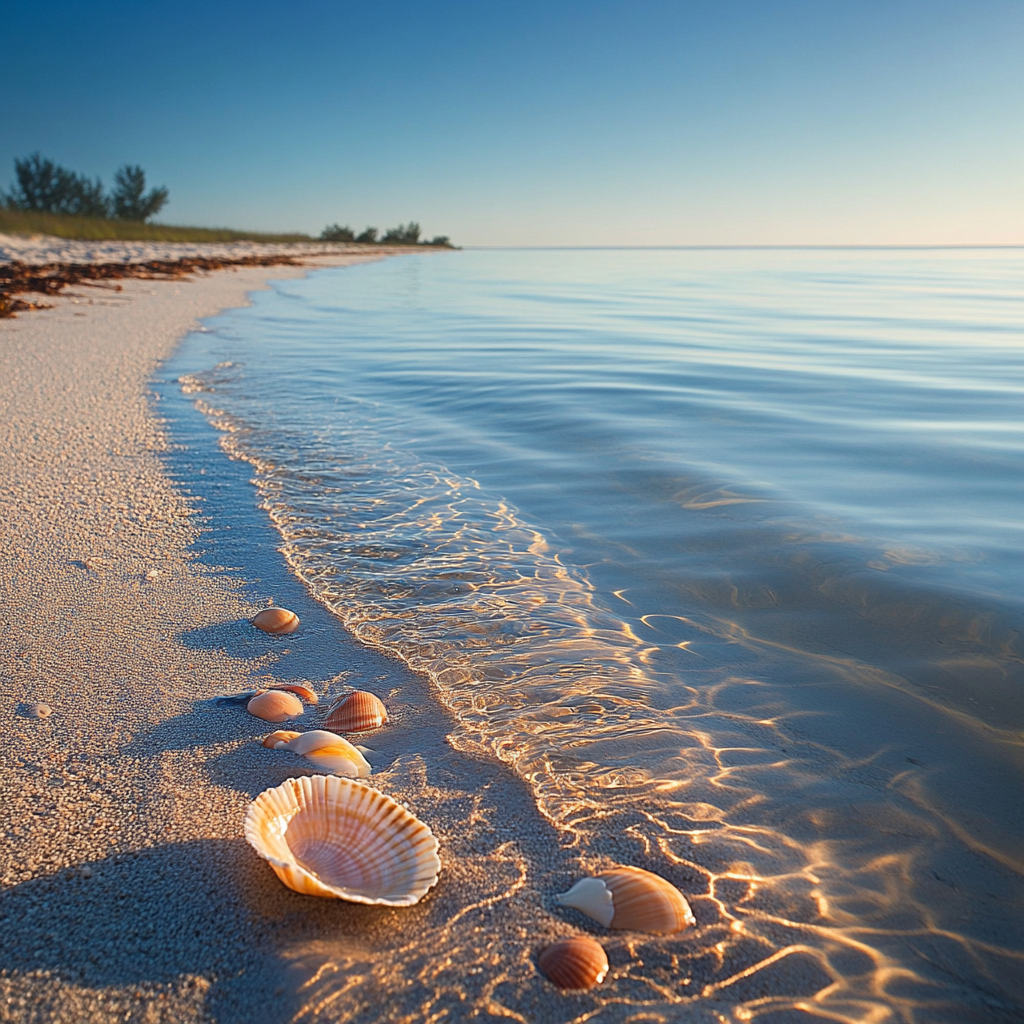
“Clean water is the heart of Sanibel’s ecosystem,” says marine ecologist Dr. Hale. “It’s essential for both wildlife and human health.” Picture the turquoise waters of Sanibel, clear and teeming with life, a natural gem that faces hidden threats. The purity of this water isn’t just a pretty sight – it’s the foundation for rare wildlife, lush plants, and the very health of the island’s community.
Visitors and locals alike will want to discover what lies beneath the surface and why protecting these waters is everyone’s responsibility. Dive in to uncover what’s really at stake for Sanibel…
Imagine stepping onto Sanibel’s shores and feeling the soft sand beneath your feet. The sun is warm, the waves are gentle, and the water glistens like crystal. But have you ever wondered what makes these waters so clear – or what threatens them?
Sanibel Island’s water quality isn’t just a “nice-to-have” for beachgoers. It’s the lifeline for rare wildlife, local plants, and those magical sunsets. Here, explore the story of Sanibel’s waters, see how clean they are, and discover what we all stand to lose (or save)…
Did You Know? 🌍
5 Surprising Facts About Sanibel’s Waters
- Clear Waters Mean Healthy Fish 🐠: The clearer the water, the more fish thrive here. Clean water allows fish to spot food easily and avoid predators.
- Clams Are Nature’s Purifiers 🦪: Each clam filters gallons of water daily, keeping it cleaner. When you see clams, it’s a sign of good water quality!
- Birds Need Clean Water, Too! 🦩: Without fresh, safe water, Sanibel’s iconic birds, like herons and pelicans, face serious survival threats.
- Seagrass Grows Strong 🌾: Seagrass beds, a main food source for sea turtles, depend on clear water. Turbid or murky water stunts their growth.
- Dolphins Need It to Hunt 🐬: Clean water helps dolphins locate prey more efficiently. When water quality declines, dolphins struggle to find food.
“Sanibel’s wildlife is a sign of how our waters are doing – healthy waters mean healthy wildlife.”
The Health of Sanibel’s Waters: A Report Card 📊
| Indicator | Current Status | Why It Matters |
|---|---|---|
| Water Clarity | Good 🌞 | Clear water is essential for fish and plants |
| Seagrass Health | Moderate 🌿 | Needed for marine animals, but still at risk |
| Wildlife Diversity | High 🐬 | Shows the water supports a variety of life |
| Bacteria Levels | Low 🚫 | Safe for swimmers, fish, and beachgoers |
| Chemical Pollutants | Minimal 🌱 | Keeps the ecosystem in balance |
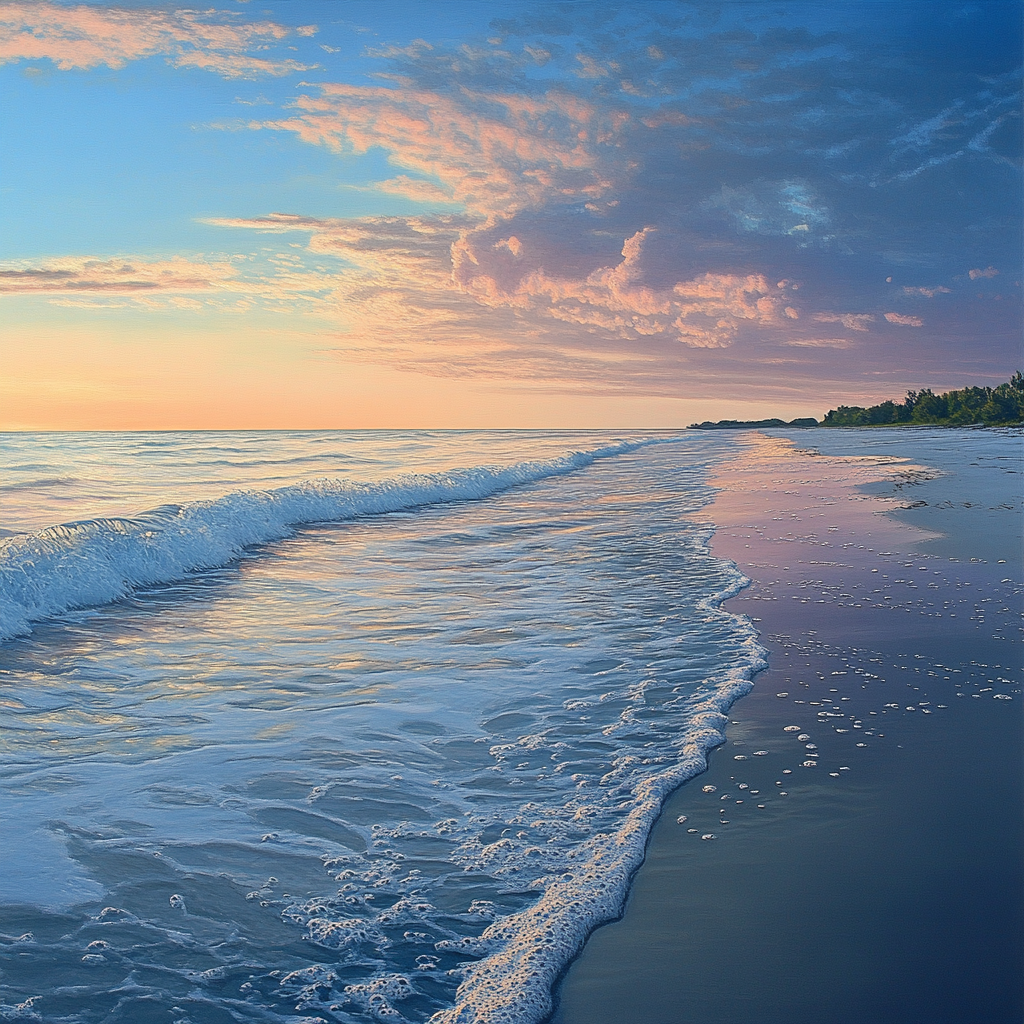
How to Help Protect Sanibel’s Waters 💧
Even small steps make a big difference. Here’s how you can contribute to keeping Sanibel’s waters beautiful:
- Avoid Single-Use Plastics 🌎: Plastics can break down into tiny particles that contaminate water.
- Use Reef-Safe Sunscreen 🧴: Chemicals in regular sunscreens harm fish and corals.
- Dispose of Trash Properly 🚮: Never leave litter behind – even the smallest pieces affect the island’s ecosystem.
- Participate in Beach Cleanups 🏖️: Keep the beaches pristine and protect wildlife.
- Choose Eco-Friendly Tours 🌊: Support tour operators who respect the environment.
🐬 Spotlight: Sanibel’s Rare Wildlife & Water Quality
Meet the Locals Relying on Clean Waters
- Manatees 🥬: These gentle giants need seagrass beds, which thrive in clear water.
- Snowy Egrets 🦩: Known for their elegant feathers, they feed on fish and rely on clean habitats.
- Sea Turtles 🐢: They need clear, warm waters for both food and safe nesting.
| Species | How Water Quality Helps |
|---|---|
| Manatees | Clear water supports seagrass for food |
| Snowy Egrets | Healthy fish populations sustain them |
| Sea Turtles | Clean beaches mean safe nesting sites |
“Every drop of clean water supports life. By caring for Sanibel’s water, you protect its wildlife!”
Fun Facts about Sanibel’s Waters
Sanibel’s waters are bursting with life and secrets waiting to be uncovered! From the vibrant fish that shimmer in the sunlight to the mysterious creatures hiding in the seagrass, there’s always something amazing below the surface.
Sanibel’s Aquatic Residents: Who’s Living Underwater?
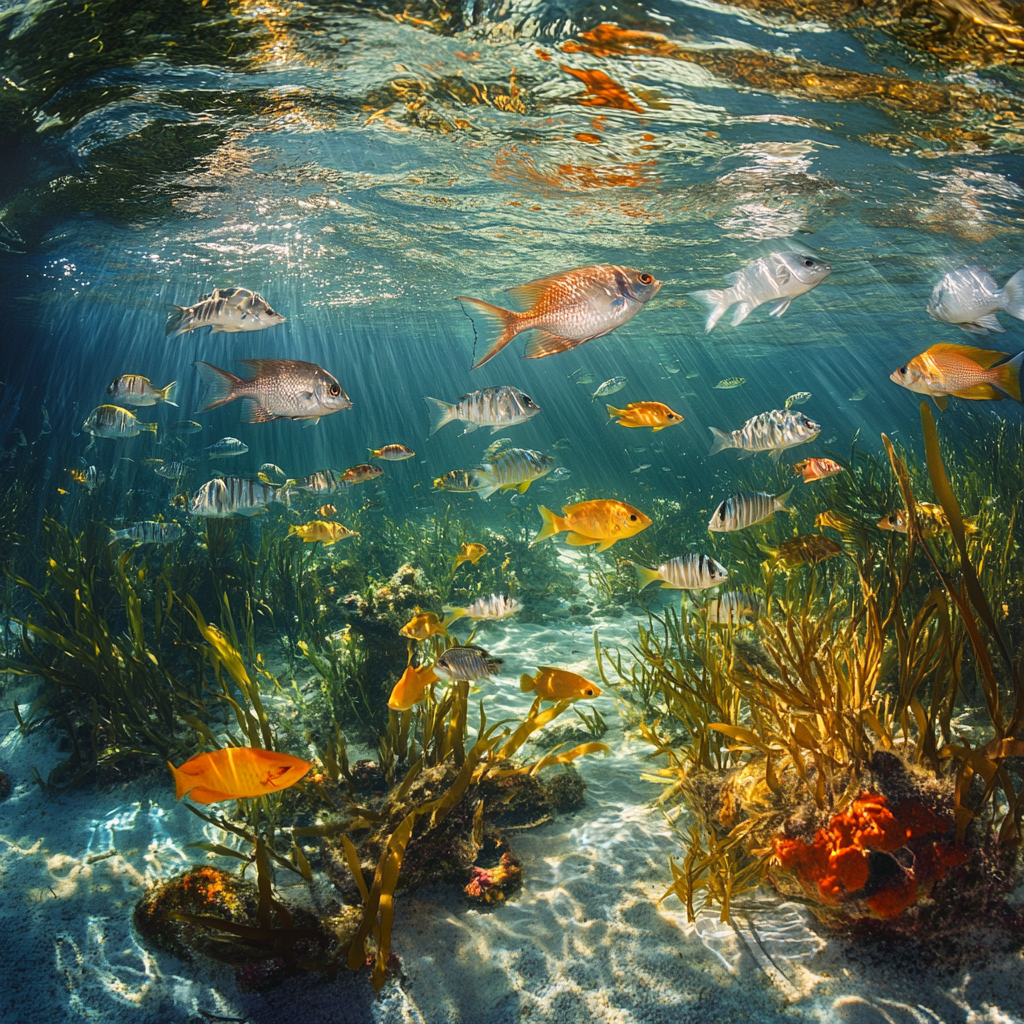
- Over 200 Fish Species: Sanibel’s waters are a haven for fish lovers! From playful snappers to shy groupers, it’s a true underwater paradise.
- Rare Shellfish: Did you know the island’s unique shellfish population helps balance the ecosystem? Sanibel’s clams and oysters play a critical role by filtering the water.
- Seagrass Meadows: These underwater “forests” are home to shrimp, sea horses, and crabs. Seagrass absorbs carbon, making Sanibel’s waters not just a playground for marine life, but also an essential part of ocean health.
Sanibel’s Water Life – Amazing Facts
| Species | Fun Fact | Role in Ecosystem |
|---|---|---|
| Clams & Oysters | Filter up to 50 gallons of water daily | Keep water clear and clean |
| Snappers | Known for quick, darting movements | Food source for larger fish |
| Seagrass | Absorbs CO₂ and provides shelter | Supports diverse species |
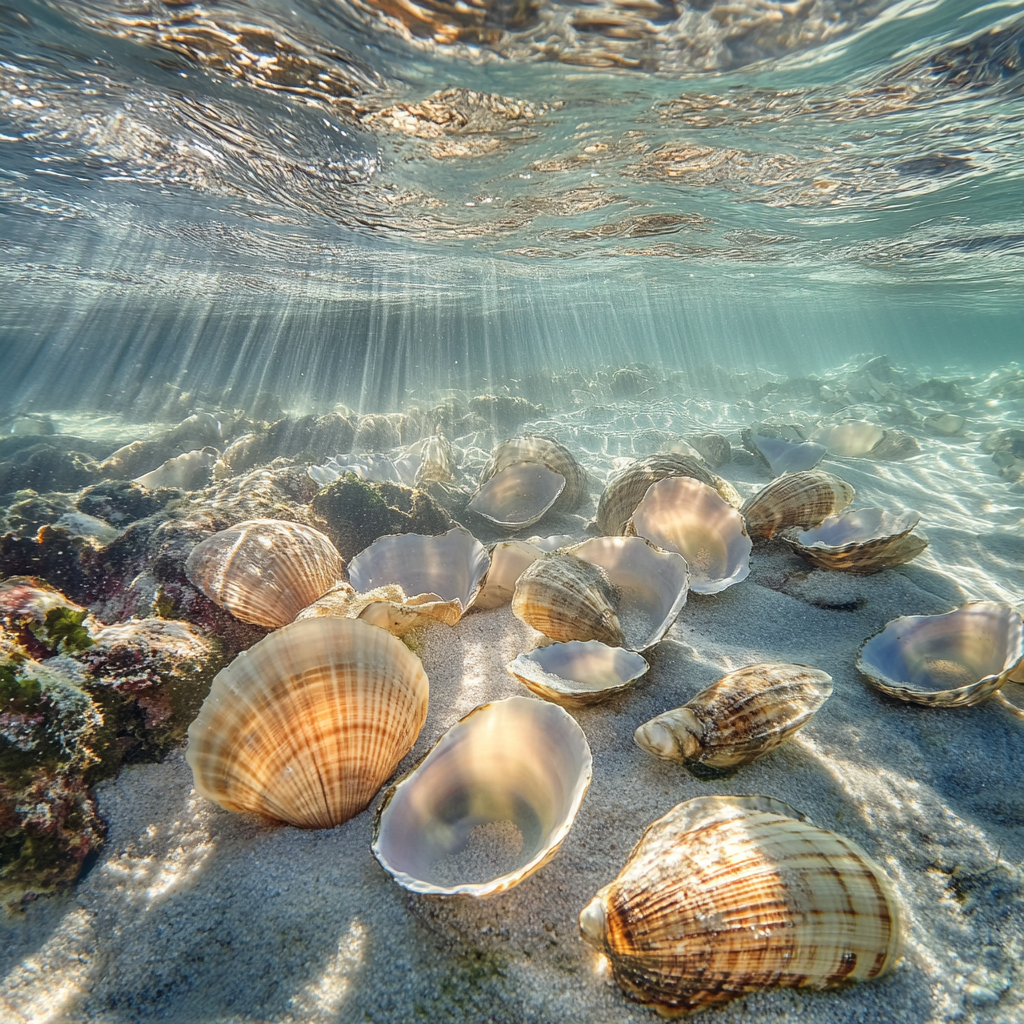
Did You Know? Fun Marine Trivia!
- Sanibel Shell Festival celebrates unique shells, showcasing finds like the lightning whelk and coquina clam.
- Manatees, also called sea cows, often graze in the warmer shallows around Sanibel.
- Dolphins are frequently spotted—sometimes even leaping alongside boats!
These waters aren’t just pretty to look at; they’re bustling with life and energy. Every fish, shellfish, and plant plays a vital role in keeping Sanibel’s waters clean and healthy. Protecting these species means protecting the magic of Sanibel itself!
Why Water Quality Matters for Wildlife
Sanibel’s water quality is the lifeline for its amazing wildlife. From dolphins to sea turtles, each creature relies on these clean waters to survive and thrive.
Sanibel’s Ocean Animals and Why They Need Clean Water
Wildlife that Need Clean Water on Sanibel Island
| Species | Why Clean Water Matters | Impact of Pollution |
|---|---|---|
| Sea Turtles | Clean beaches for nesting; clear water for food | Pollution can hurt eggs and young turtles |
| Dolphins | Fresh, clean water for hunting fish | Polluted water disrupts their food sources |
| Manatees | Need warm, clear water to graze on seagrass | Pollutants harm their health and food supplies |
| Birds | Healthy fish and shellfish depend on clean water | Polluted waters mean fewer food sources |
Did You Know? Surprising Water Facts!
- Sea turtles need safe, sandy beaches to nest, but pollution and poor water quality make their journey tougher.
- Manatees feed on underwater plants, which need sunlight to grow. Polluted water blocks the sun, so no plants, no food!
- Birds like egrets and pelicans need clear waters for hunting fish. Even a bit of pollution can scare fish away.
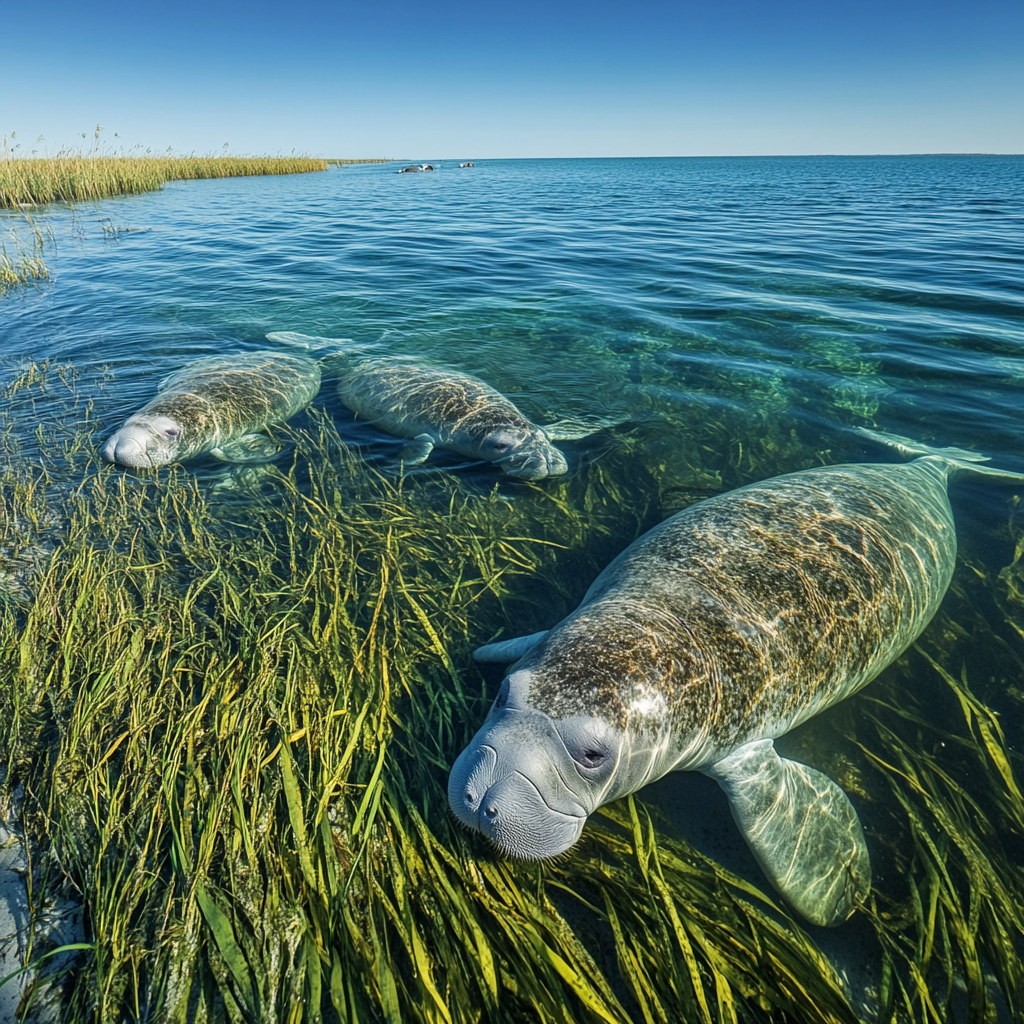
Sanibel’s clean waters aren’t just beautiful—they’re essential. Keeping them clean is vital for every dolphin splash, sea turtle hatch, and peaceful manatee swim.
What’s Your Eco-Promise?
Want to make a difference for Sanibel’s waters? It’s easier than you think! Take our quick poll and make your eco-promise. Each choice helps keep our island clean and its wildlife safe. You’ll be part of a growing conservation community, all working together for a better future!
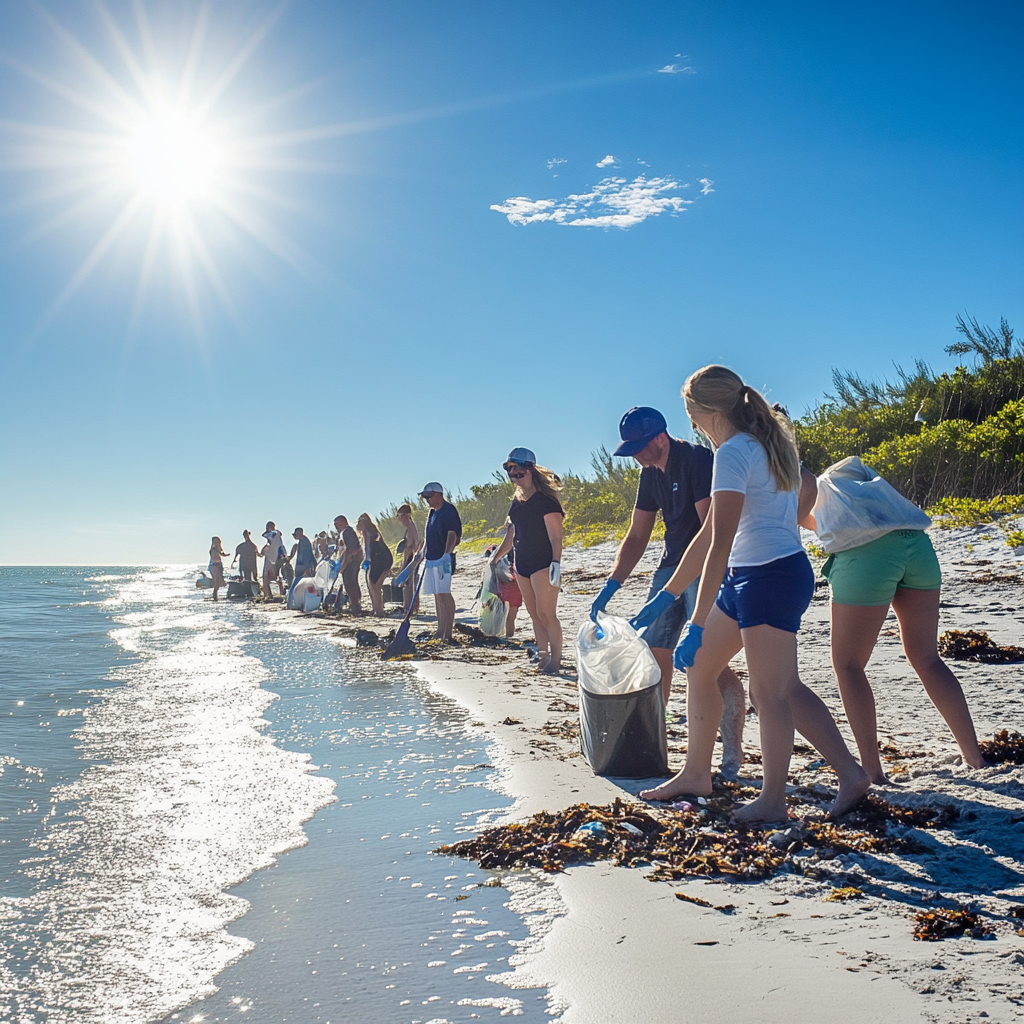
Ready to help keep Sanibel’s waters pristine? Every small action makes a big difference. Whether it’s choosing eco-friendly products or joining a beach cleanup, every step counts.
Click below to explore easy ways to make an impact today—eco-friendly tips, donation options, and more are just a click away!
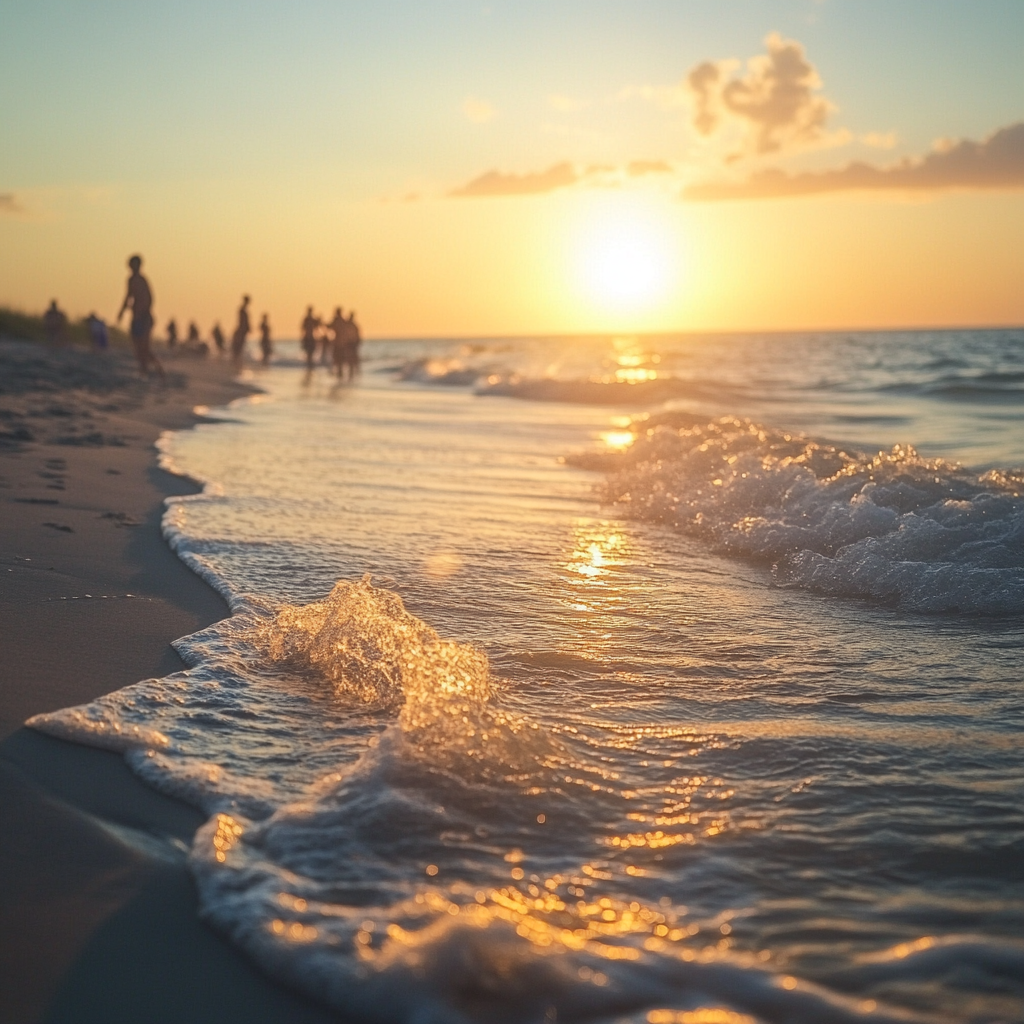
Thank You for Your Support!
Thank you for exploring the wonders of Sanibel’s waters with us! Your involvement is helping ensure these waters remain clean and vibrant for generations to come. Stay connected with us on Facebook for more updates, tips, and exciting stories.

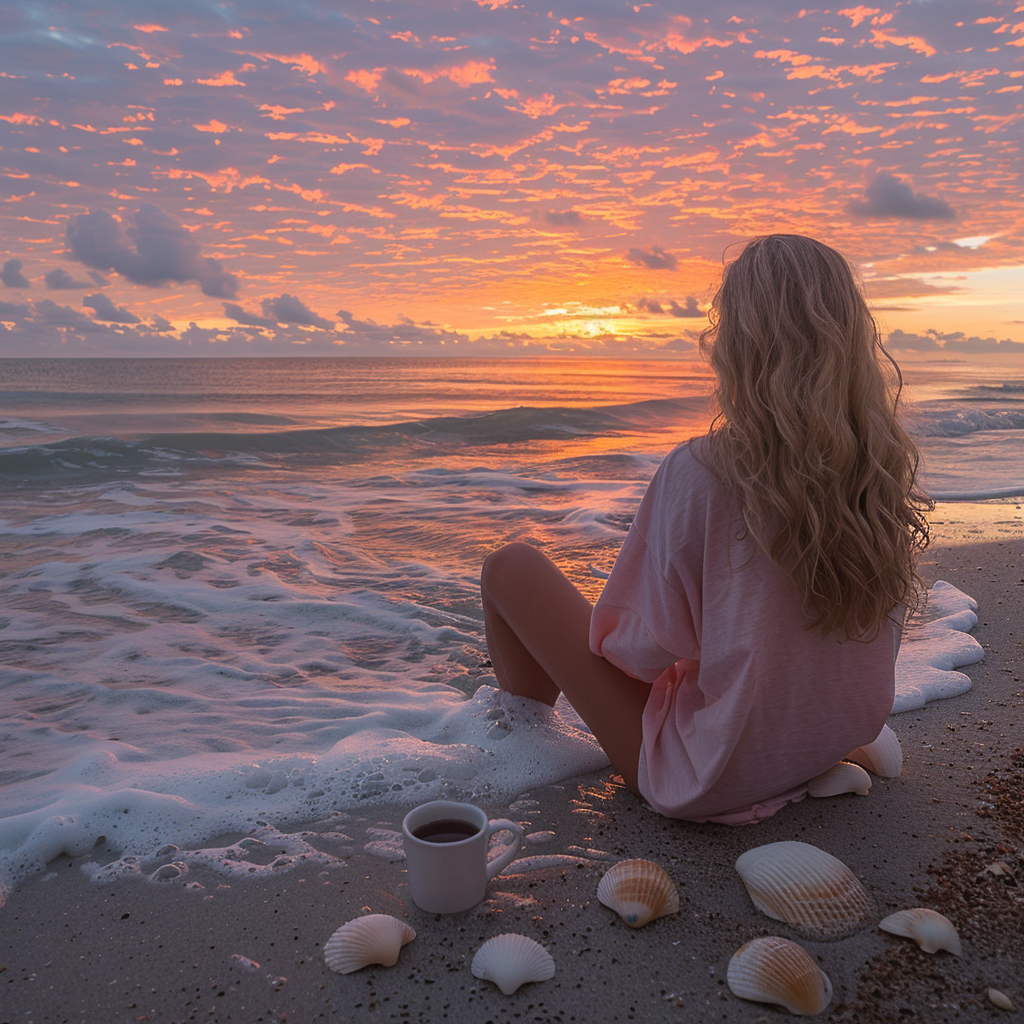
I’m Ayla Wolesky, and I’ve spent years exploring every corner of Sanibel Island. From its pristine beaches to the hidden gems only locals know about, I’m passionate about sharing everything this beautiful island has to offer. Whether it’s the best spots for shelling, the wildlife that makes Sanibel so special, or where to enjoy a perfect sunset, I’ve got you covered. My goal is to provide insider tips and up-to-date information that will help you experience Sanibel Island like never before.


